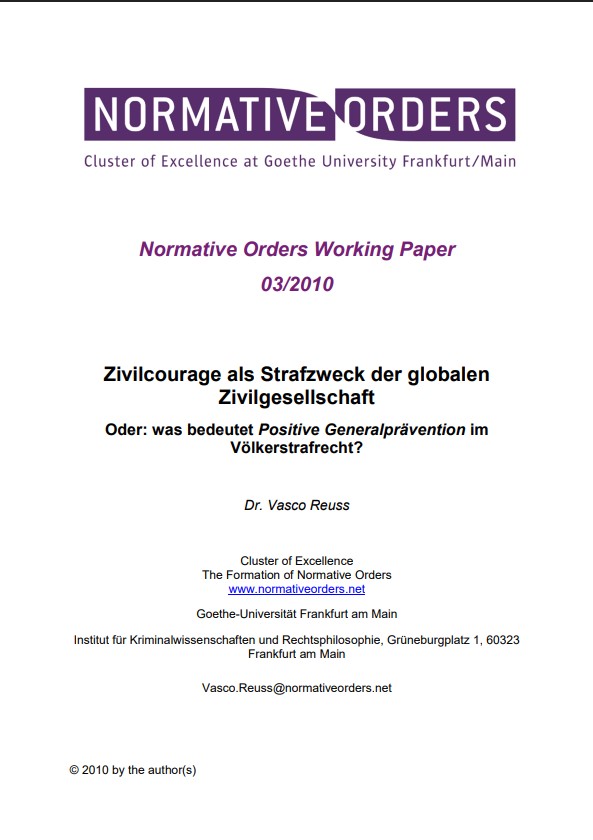Civil courage as a punitive purpose of global civil society. Or: what does positive general prevention mean in international criminal law?
This article attempts to deal in outline with two major thematic and theoretical strands that are interwoven in the concept of positive general prevention. One strand can do no more than give an idea of the challenges that international criminal law and its criminology pose to the penal purposes common in national criminal law; the other strand then elaborates in more detail from a criminological, legal and norm-theoretical perspective what international criminal law with its procedures and sanctions – always measured against its own immanent and partly still implicit claims – must strive for in terms of explicit legal effects, at least if it wants to be and remain, like national criminal law, a decidedly preventive criminal law of guilt. Both strands ultimately meet in the consideration that international criminal law is in many ways, as explained in more detail here, a “new form” of criminal law, the purpose of which may use the teleological semantics of national criminal law, but which must mean something completely different and also new due to the nature of its subject matter.


